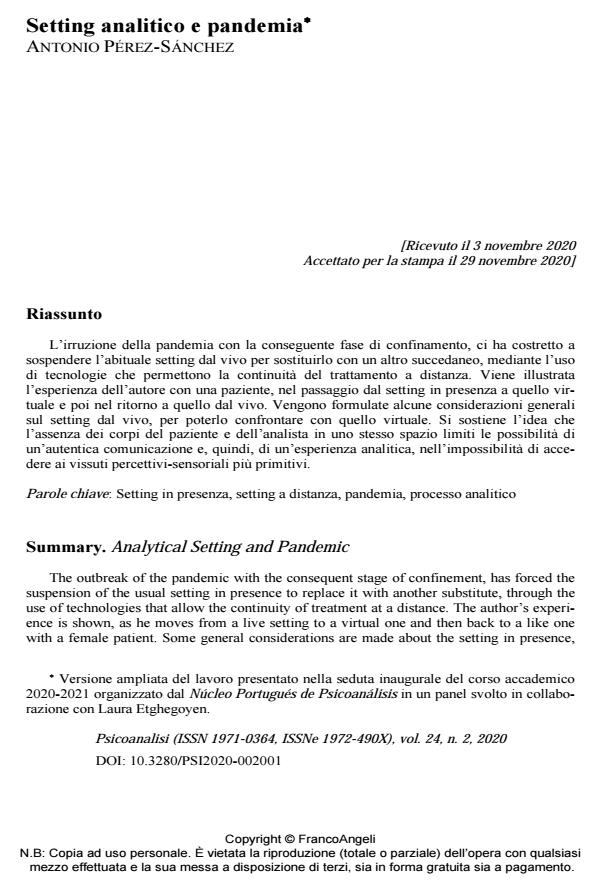Analytical Setting and Pandemic
Journal title PSICOANALISI
Author/s Antonio Pérez-Sánchez
Publishing Year 2021 Issue 2020/2
Language Italian Pages 20 P. 5-24 File size 229 KB
DOI 10.3280/PSI2020-002001
DOI is like a bar code for intellectual property: to have more infomation
click here
Below, you can see the article first page
If you want to buy this article in PDF format, you can do it, following the instructions to buy download credits

FrancoAngeli is member of Publishers International Linking Association, Inc (PILA), a not-for-profit association which run the CrossRef service enabling links to and from online scholarly content.
The outbreak of the pandemic with the consequent stage of confinement, has forced the suspension of the usual setting in presence to replace it with another substitute, through the use of technologies that allow the continuity of treatment at a distance. The author’s experience is shown, as he moves from a live setting to a virtual one and then back to a like one with a female patient. Some general considerations are made about the setting in presence, in order to be able to contrast it with the virtual one. The author supports the idea that the absence of the patient’s and the analyst’s bodies in the same space, limits the possibilities of an authentic un-conscious communication, and therefore of an analytical experience, since they do not have access to the primitive perceptive-sensorial experiences.
Keywords: Presence setting, remote setting, pandemic, analytical process
Antonio Pérez-Sánchez, Setting analitico e pandemia in "PSICOANALISI" 2/2020, pp 5-24, DOI: 10.3280/PSI2020-002001